Self Awareness Teaching Resources
Help your students develop self awareness with activities, printables and more social and emotional teaching resources designed specifically for elementary and middle school students.
Created by teachers, for teachers, this collection is full of digital and printable activities designed to help students recognize their emotions and learn to identify their own strengths and weaknesses. Each teaching resource has undergone rigorous review by the Teach Starter team to ensure it's ready for the classroom ... and your students!
Curious about teaching self awareness and wondering how it applies to kids in your classroom? Read on for some tips from our expert teachers!
What Is Self Awareness? A Kid-Friendly Definition
Most students are not terribly self aware when they enter elementary school, and that's completely normal. After all, any adults aren't very adept at self awareness! That's why it's so important to include these lessons in your planning to help students flex those muscles and become more aware of who they are.
So how do you explain the meaning of self awareness to your class, and how do you teach it? Let's start with a kid-friendly definition.
Self awareness means understanding yourself, your feelings and how your actions affect other people.
You might tell your students that being self aware is a bit like having a mirror inside your mind that can help you see who you are and how you can make good choices.
Explain to students that when you're self-aware, you know what you're good at and what you might need to work on so you can become your own superhero.
Why Is Self Awareness Important?
Learning to be self aware is part of gaining control of one's own emotions, thoughts and actions, and the lessons we teach in the classroom contribute to our students' personal growth, social interactions and overall well-being in the immediate future and well into adulthood.
When kids (and adults!) lack self awareness, they tend to struggle with poor decision making, and they may have trouble understanding how their behavior affects others. This can lead to misunderstandings and conflicts with peers and others around them or even unintentional harm to relationships, as they may struggle to empathize or consider the perspectives of others.
Self Awareness Examples for Kids
Explaining self awareness by providing a definition is one thing, but surely you want to dig a little deeper.
Here are some examples from our teacher team that you can use to illustrate what it means to be self aware — and why it's so important!
- Identifying Emotions — Being able to label our emotions with names like happiness, sadness, anger or excitement is a great example of being self aware. For example, your students might learn to say, "I feel happy when I play with my friends at recess."
- Understanding Your Talents — Another example of self awareness that kids can easily relate to is the concept of identifying one's strengths or talents. It can be helpful to consider things we can do well and things we want to work on to get better at. For example, a student might say "I am very good at singing, but I would like to practice my spelling to improve."
- Seeing Strengths in Our Peers — Acknowledging our own strengths is only part of being self aware. It's also good for students to be able to identify (and celebrate) the strengths of others. This will help them build better relationships in the long run.
- Plus Plan
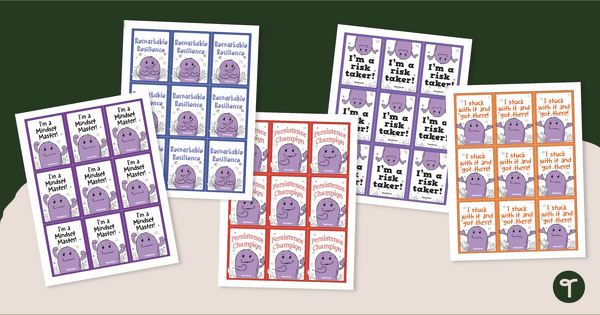
Growth Mindset Brag Tags
Celebrate students using a growth mindset with a set of printable growth mindset brag tags!
- Plus Plan
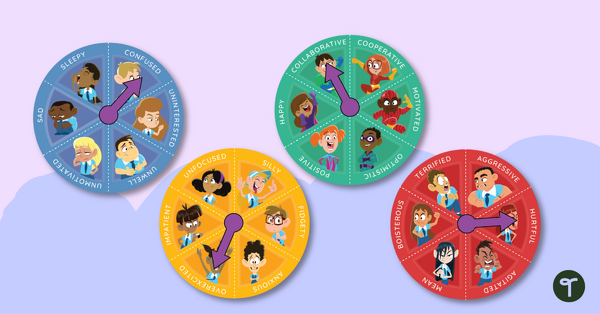
Emotional Self-Regulation – Student Emotion Mood Meter
Allow your students to communicate how they are feeling using a non-verbal, desk-sized mood meter.
- Plus Plan
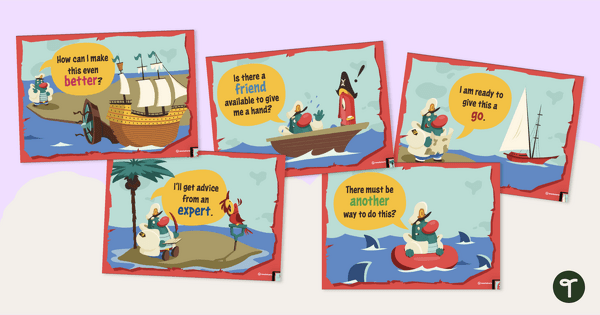
Are We There Yet? – Growth Mindset Progress Chart
Help your students develop a growth mindset by reflecting on their learning progress with this progress tracking chart.
- Plus Plan
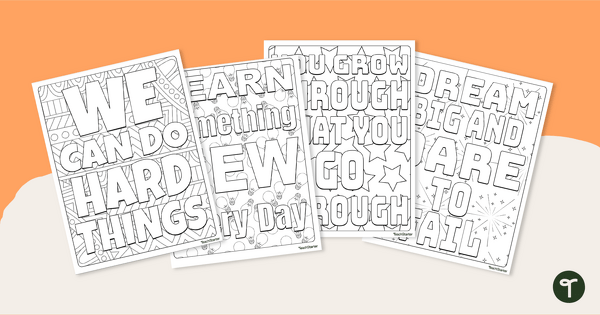
Growth Mindset Coloring Pages
Inspire creativity and encourage your students to think positively with a set of growth mindset coloring pages.
- Plus Plan
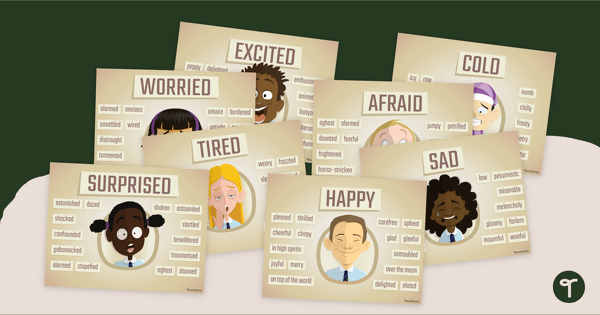
Synonym Poster Pack - Emotions Chart Display
A series of posters that display different words that can be used for different emotions.
- Plus Plan
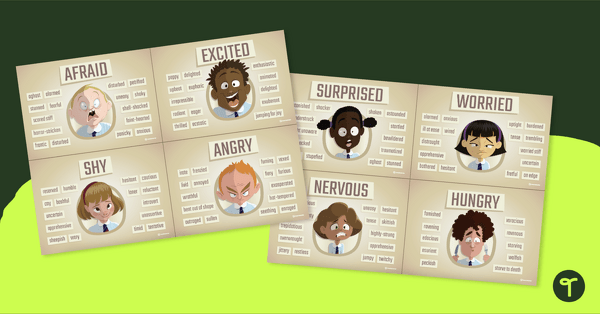
Emotions Charts - Synonym Flashcards
Give your students the words and synonyms they need to express emotions and enhance their writing.
- Plus Plan
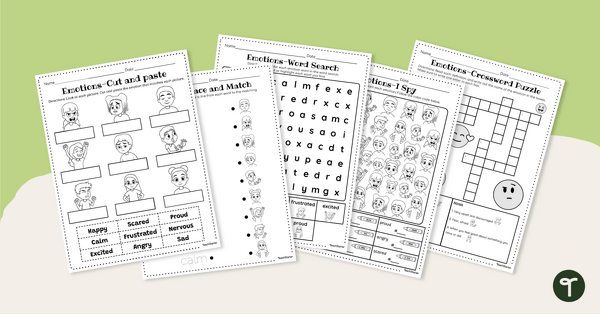
Emotions Worksheet Pack
Help students understand different emotions with this set of five emotions worksheets.
- Plus Plan
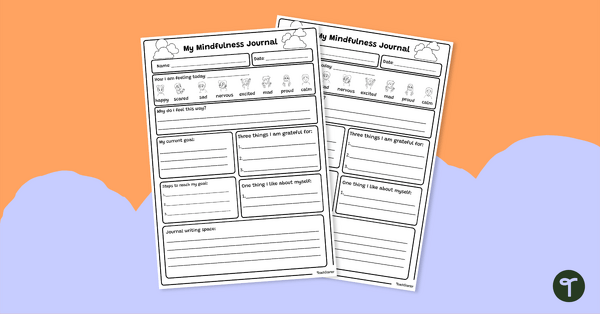
Mindfulness for Kids - Daily Journal Worksheet
Create a mindfulness journal by printing your students copies of reflective mindfulness worksheets.
- Plus Plan
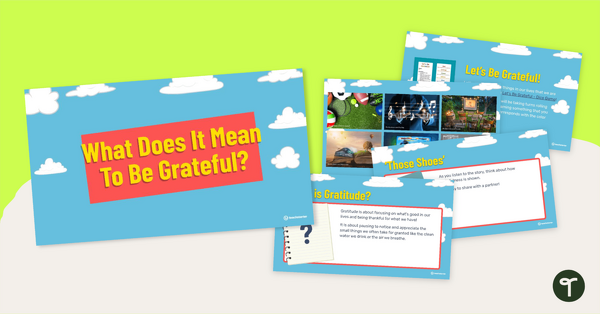
What Does It Mean To Be Grateful? Teaching Slide Deck
Use this editable teaching slide deck when teaching your students about gratitude.
- Plus Plan
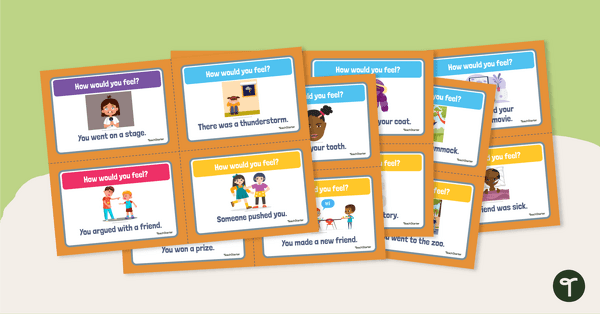
How Would You Feel? Scenario Cards
Develop your students' emotional vocabulary with this set of real-life scenarios.
- Plus Plan
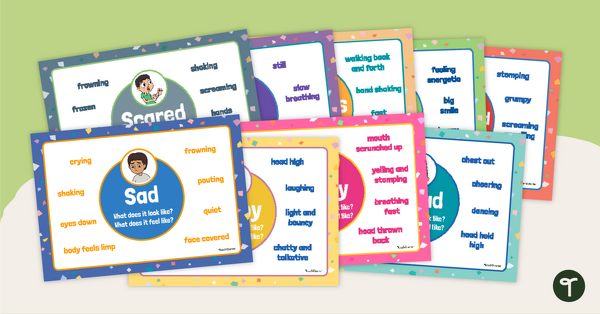
Characteristics of Emotions - Poster Set
Learn the facial expressions and body cues that accompany the most common emotional states with this poster set.
- Plus Plan
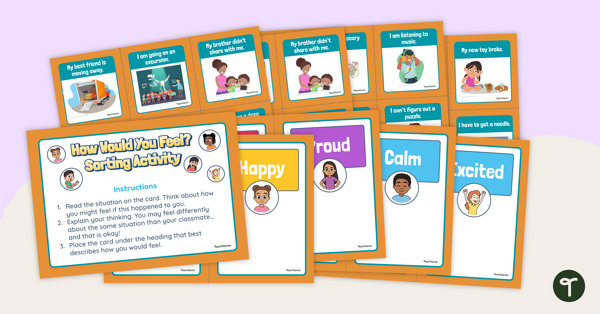
How Would I Feel? Sorting Activity
Develop emotional vocabulary using these real-life scenario cards.
- Plus Plan
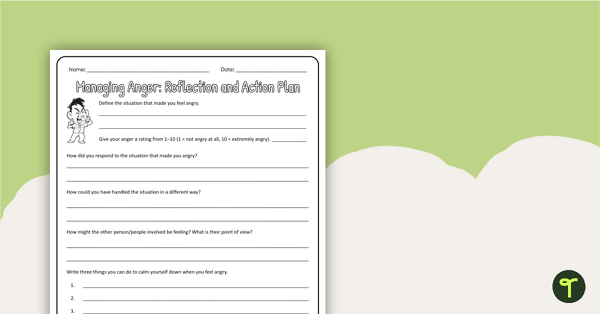
Managing Anger Worksheet (Intermediate)
Help older students identify and manage angry feelings with this self-reflection and action plan worksheet.
- Plus Plan
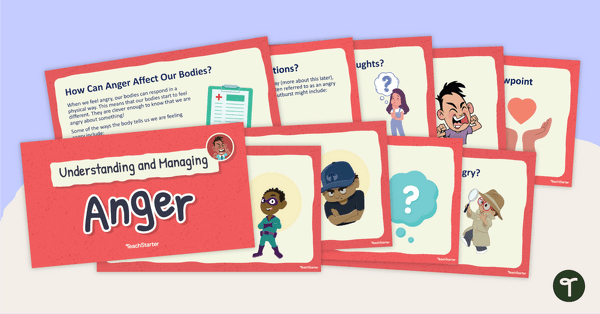
Understanding and Managing Anger Teaching Presentation
Teach your students about angry feelings with this comprehensive guide to understanding and managing anger.
- Plus Plan
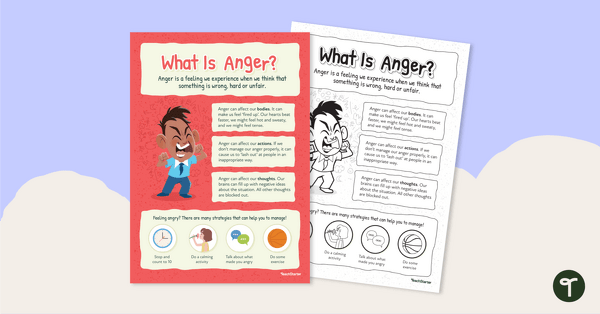
What Is Anger? Poster
Teach your students to understand and manage anger with this informative classroom display poster.
- Plus Plan
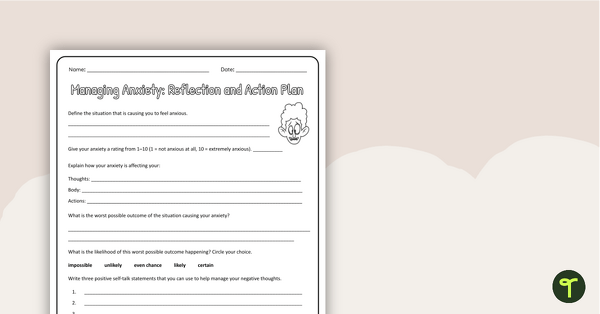
Managing Anxiety Worksheet (Intermediate)
Help older students identify and manage anxious feelings with this self-reflection and action plan worksheet.
- Plus Plan
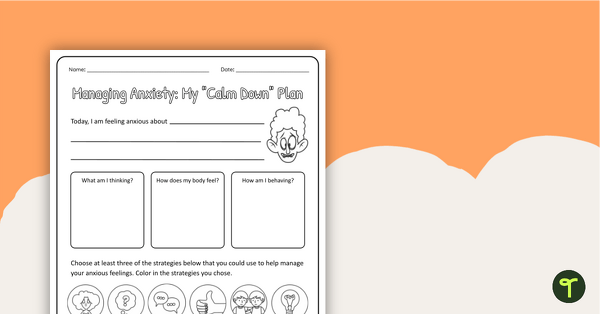
Managing Anxiety Worksheet (Primary)
Help students identify and manage anxious feelings with this self-reflection worksheet.
- Plus Plan
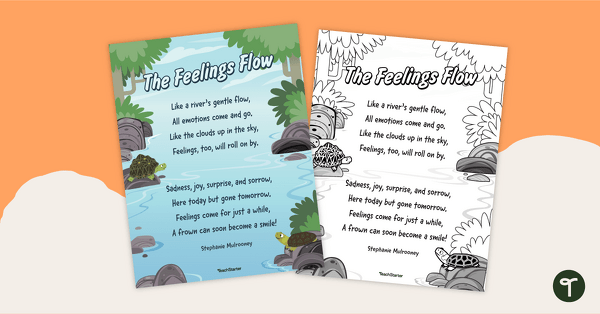
The Feelings Flow — Classroom Poster
Help students understand the transient nature of emotions with this simple poem about feelings.
- Plus Plan
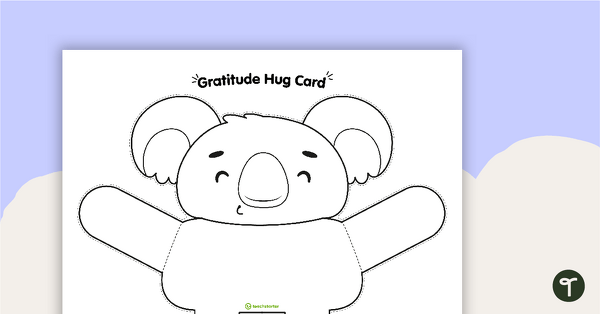
Koala Gratitude Hug Card
Have your students show their gratitude to someone they love with this koala hug template.
- Plus Plan
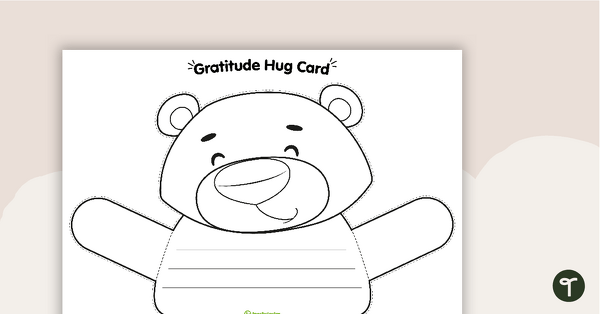
Bear Gratitude Hug Card
Have your students show their gratitude to someone they love with this bear hug template.
- Plus Plan
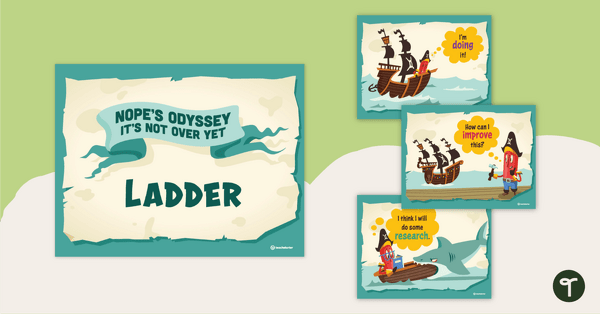
Growth Mindset Vertical Chart With a Pirate Theme
Get your students reflecting on their learning progress with this vertical tracking chart.
- Plus Plan
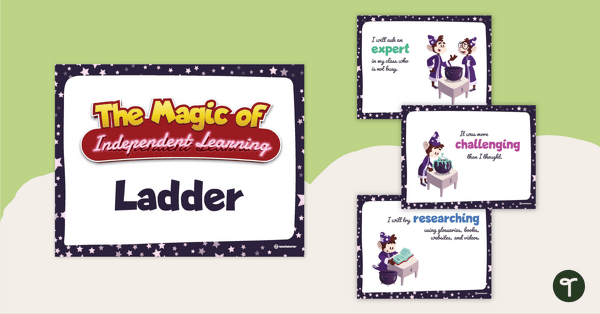
The Magic of Independent Learning – Vertical Chart
Chart your students' learning progress with this set of 8 vertical tracking sheets.
- Plus Plan
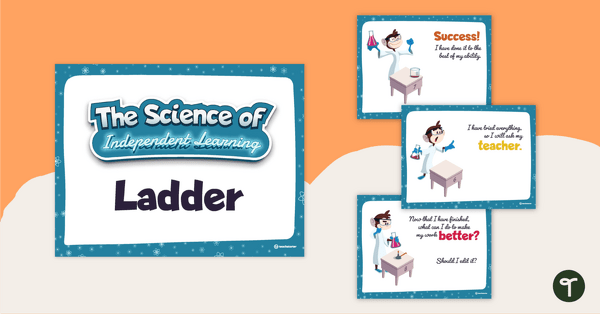
The Science of Independent Learning – Vertical Chart
Chart your students' learning progress on this set of 8 vertical tracking sheets.
- Plus Plan
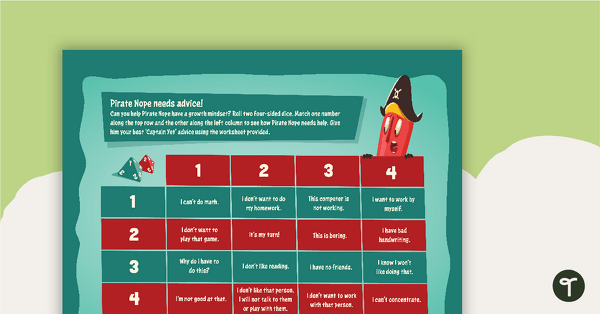
Growth Mindset Dice Game
Download a growth mindset dice game where students use "yet" strategies to solve a problem.
- Plus Plan
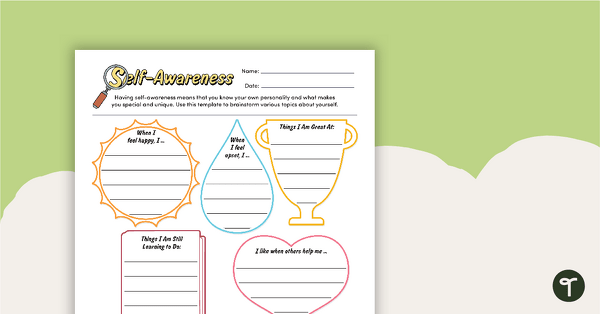
Self-Awareness Template
Introduce students to self-awareness with this one-page writing template.
- Plus Plan
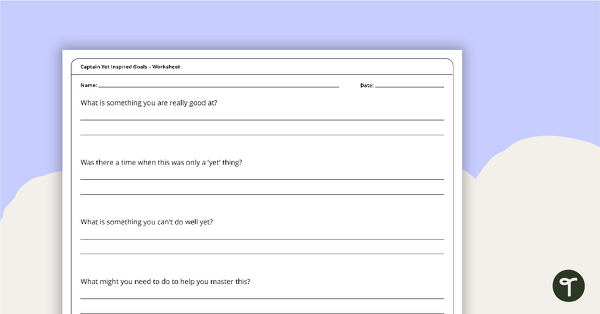
Growth Mindset Goal-Setting Worksheet
Download a printable growth mindset worksheet for students to evaluate their strengths and how to achieve their goals.
- Plus Plan
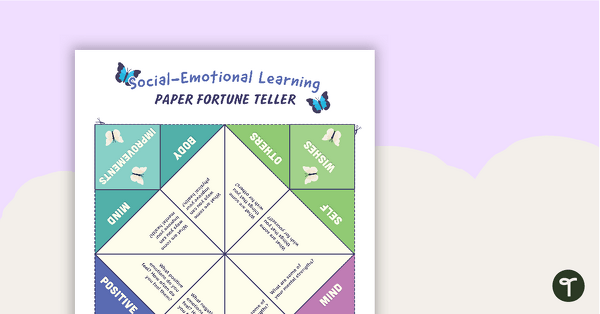
Social-Emotional Learning Paper Fortune Teller
A paper fortune teller template for students to use during social-emotional learning.
- Plus Plan
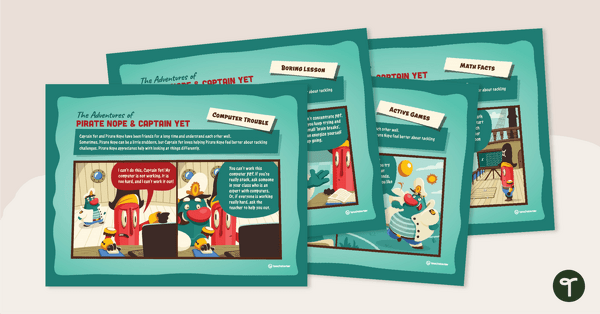
The Adventures of Pirate Nope and Captain Yet – Comic
Problem-solve common challenges at school with a set of 4 comic-style posters.
- Plus Plan
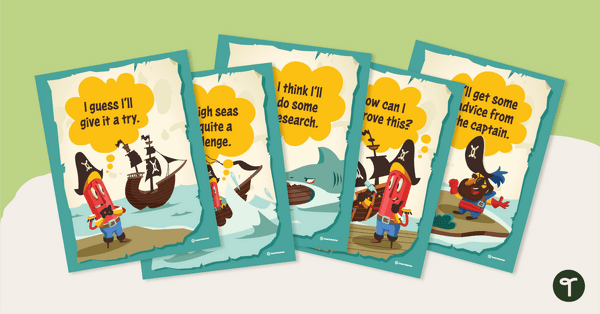
Growth Mindset Posters - Pirate Nope's Odyssey: It's Not Over Yet
Remind your students what a "can-do attitude" looks like in the classroom with this set of 8 posters.
- Plus Plan
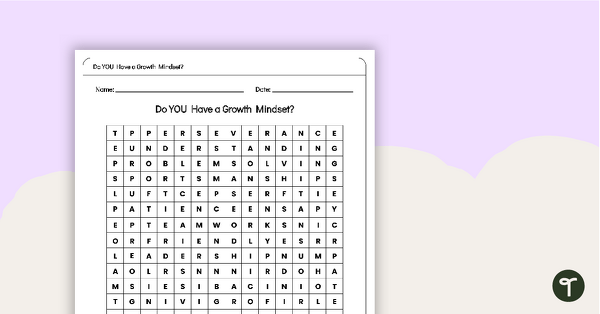
Do YOU Have a Growth Mindset? – Word Search
Use this word search activity to show students the qualities and characteristics of creating a growth mindset in the classroom.
- Plus Plan
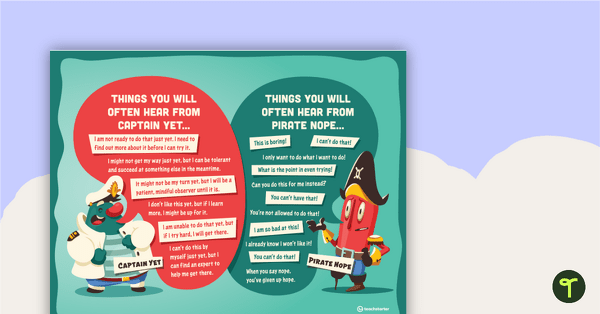
Growth Mindset-Themed Yet vs Nope Classroom Poster
Print a growth mindset-themed set of posters for your classroom that compare positive and negative learning attitudes.
- Plus Plan
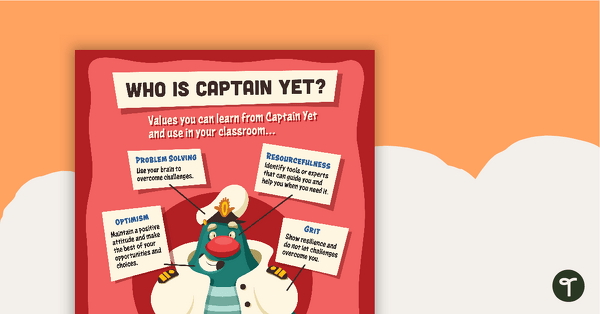
Captain Yet – Values Poster
A Captain Yet poster to help students focus on positive learning habits.